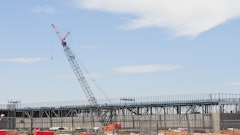Construction contracts often contain a notice of claim provision which requires either party to provide written notice of all claims to the other party within a specified time period.
Generally, failure to comply with a notice of claim provision is treated as a waiver of the claim. As Kingsley Arms Inc. v. Sano Rubin Construction Co. Inc. demonstrates, courts require that notice of claim provisions be strictly complied with prior to the commencement of an action.
In Kingsley Arms, defendant contractor entered into a subcontract with plaintiff subcontractor for site work and excavation.
The subcontract contained a notice of claim provision which stated that no claim could be asserted unless, as a condition precedent, the party asserting that claim complied with the notice of claim provision. The notice provision further stated that written notice must be provided within 21 days after the occurrence of the event that gives rise to that claim.
In September 2001, almost 11 months after the substantial completion date, the subcontractor sent written notice of its claim to the contractor seeking additional costs, alleging that other subcontractors who had not completed their work precluded the subcontractor from completing its work by the agreed-upon date.
The subcontractor subsequently commenced an action against the contractor for its claim. The contractor moved for summary judgment arguing that the subcontractor had not complied with the notice of claim provision of the contract. The trial court denied the contractor's motion.
The court's decision
On appeal, the contractor contended the subcontractor failed to comply with the notice provision by not submitting its claim within 21 days.
The subcontractor conceded that its written notice of claim did not strictly comply with the notice provision, but argued that the contractor was aware, though conversations with the subcontractor, that the subcontractor was unable to complete its work due to the failure of other subcontractors to complete their work. The subcontractor provided no details of these conversations nor did it allege that the contractor somehow waived the written notice claim provision of their contract.
The court held that the subcontractor's failure to comply with the notice provision was a waiver of its claim and dismissed the complaint.
Kingsley Arms demonstrates the critical importance to contractors and subcontractors to be aware of, and comply with, notice of claim provisions in their contracts. The result of failing to follow in detail the requirements of a notice provision can bar an otherwise valid claim.
Gerald I. Katz is an attorney specializing in construction law throughout the United States with Katz & Stone LLP, Suite 600, 8230 Leesburg Pike, VA 22182.



























